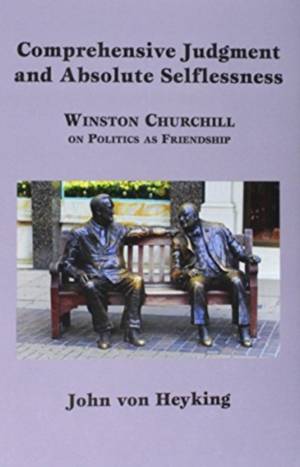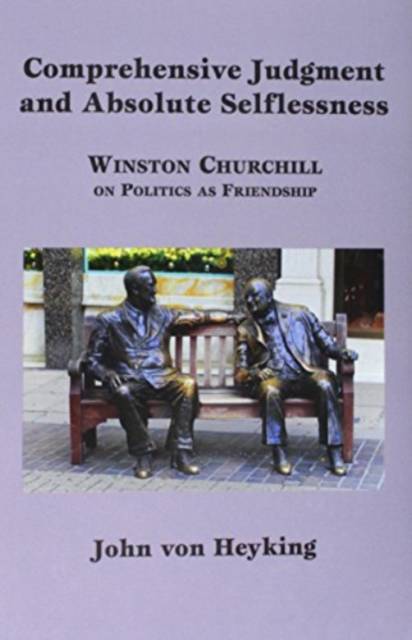
- Retrait gratuit dans votre magasin Club
- 7.000.000 titres dans notre catalogue
- Payer en toute sécurité
- Toujours un magasin près de chez vous
- Retrait gratuit dans votre magasin Club
- 7.000.000 titres dans notre catalogue
- Payer en toute sécurité
- Toujours un magasin près de chez vous
Comprehensive Judgment and Absolute Selflessness
Winston Churchill on Politics as Friendship
John Von HeykingDescription
Histories and biographies of Winston Churchill frequently mention his friends. Some comment on their importance but few explain their significance. Indeed, he rarely spoke of his friendships. However, his concern for friends and for friendship always seems to hover above, or in the background, of his statecraft and in his thinking about statecraft and politics. This book brings friendship into focus as a central component of Churchill's understanding of politics and statesmanship.
Regarding friendship as a key to politics seems archaic or even elitist today in the minds of many. But for many of the greatest statesmen of the past and even of contemporary times, friendship has been the central category of their statecraft and their moral vision of politics.
Churchill was one of those statesmen. This book examines friendship as the core of Churchill's moral vision of politics by considering both his practice of friendship, as well as his thoughts on friendship in political life. It examines some of the friendships he conducted in his political life, including with Lord Birkenhead (F. E. Smith), Lord Beaverbrook (Max Aitken), and Franklin D. Roosevelt.
It also examines his historical and political writings to explain how he regarded friendship also as a goal for political life. He regarded Parliament as a club of friends who esteemed their friendships, as parliamentarians who are custodians of the common, as nobler than the partisan differences that divided them. The idea of trans-partisan friendships also animated the "Other Club" he founded with Birkenhead. Indeed, Churchill thought parliamentary democracy, more than other regimes, depends upon the friendliness of its statesmen and its citizens to mitigate the heat of factional strife. For him, parliamentary democracy depends on personal friendships of the highest order to sustain the forms and formalities of the regime, as well as the political friendship upon which they are based.
Churchill's biography of his great ancestor John Churchill, the Duke of Marlborough, is his greatest statement of his political wisdom that consists also of a sustained statement on the centrality of friendship in politics. His view of Great Britain as an "island story" is also his expression of a political friendship expressed as a long historical adventure, much as he his personal friendships within politics as great adventures. Because adventures get sung about, he was its main singer, whose "songs" appeared as his speeches and extensive historical writings.
As a book about Churchill's moral vision for politics, this book asks a philosophical question by considering his life, political actions, and writings. This book is not a biographical or historical description of Churchill and his friends. This is more of a character sketch, or a work of "empirical political philosophy" because of the philosophical exposition it provides of the actions and speeches of a creative prince such as Churchill.
This book describes how Churchill understood friendship as the essence of statesmanship.
Spécifications
Parties prenantes
- Auteur(s) :
- Editeur:
Contenu
- Nombre de pages :
- 224
- Langue:
- Anglais
Caractéristiques
- EAN:
- 9781587311604
- Date de parution :
- 02-04-18
- Format:
- Livre relié
- Format numérique:
- Genaaid
- Dimensions :
- 155 mm x 231 mm
- Poids :
- 521 g







